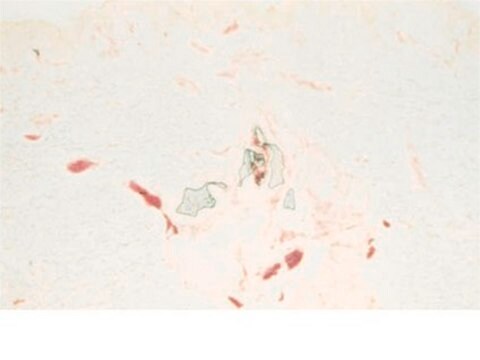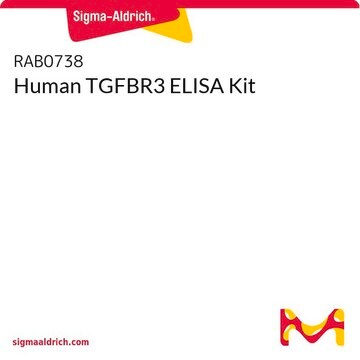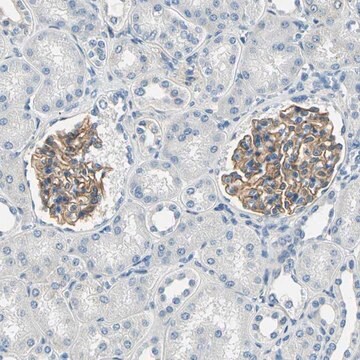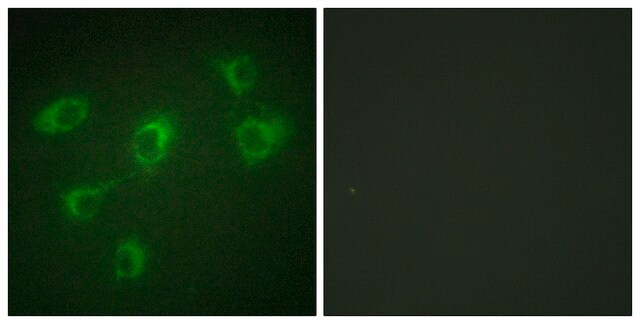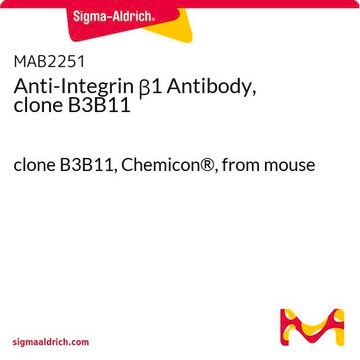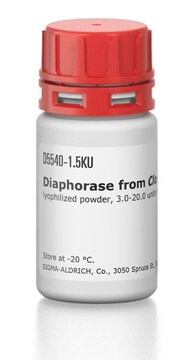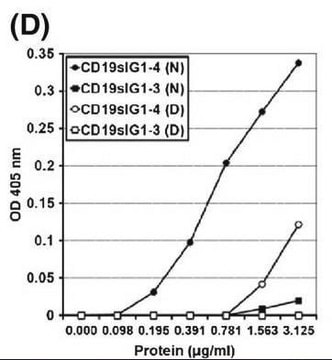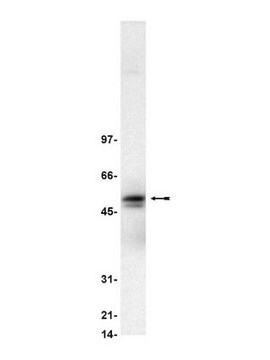MABC710
Anti-TGFBR3, clone 1C5H11 Antibody
ascites fluid, clone 1C5H11, from mouse
Synonym(s):
Transforming growth factor beta receptor type 3, TGF-beta receptor type 3, TGFR-3, Betaglycan, Transforming growth factor beta receptor III, TGF-beta receptor type III, TGFBR3
About This Item
Recommended Products
biological source
mouse
Quality Level
antibody form
ascites fluid
antibody product type
primary antibodies
clone
1C5H11, monoclonal
species reactivity
human, mouse
technique(s)
ELISA: suitable
flow cytometry: suitable
western blot: suitable
isotype
IgG2b
UniProt accession no.
shipped in
wet ice
target post-translational modification
unmodified
Gene Information
human ... TGFBR3(7049)
Related Categories
General description
Immunogen
Application
ELISA: A representative lot was used on Control Antigen (100 ng) and Antigen (10 ng, 50 ng, 100 ng) in ELISA (Direct).
Apoptosis & Cancer
Tumor Markers
Quality
Western Blotting Analysis: A 1:500-1:2,000 dilution of this antibody detected TGFBR3 in Jurkat, HeLa, MCF-7, F9, SK-N-SH and NIH/3T3 cell lysates.
Target description
Physical form
Storage and Stability
Handling Recommendations: Upon receipt and prior to removing the cap, centrifuge the vial and gently mix the solution. Aliquot into microcentrifuge tubes and store at -20°C. Avoid repeated freeze/thaw cycles, which may damage IgG and affect product performance.
Disclaimer
Not finding the right product?
Try our Product Selector Tool.
Storage Class Code
12 - Non Combustible Liquids
WGK
nwg
Flash Point(F)
Not applicable
Flash Point(C)
Not applicable
Regulatory Listings
Regulatory Listings are mainly provided for chemical products. Only limited information can be provided here for non-chemical products. No entry means none of the components are listed. It is the user’s obligation to ensure the safe and legal use of the product.
JAN Code
MABC710:
Certificates of Analysis (COA)
Search for Certificates of Analysis (COA) by entering the products Lot/Batch Number. Lot and Batch Numbers can be found on a product’s label following the words ‘Lot’ or ‘Batch’.
Already Own This Product?
Find documentation for the products that you have recently purchased in the Document Library.
Our team of scientists has experience in all areas of research including Life Science, Material Science, Chemical Synthesis, Chromatography, Analytical and many others.
Contact Technical Service